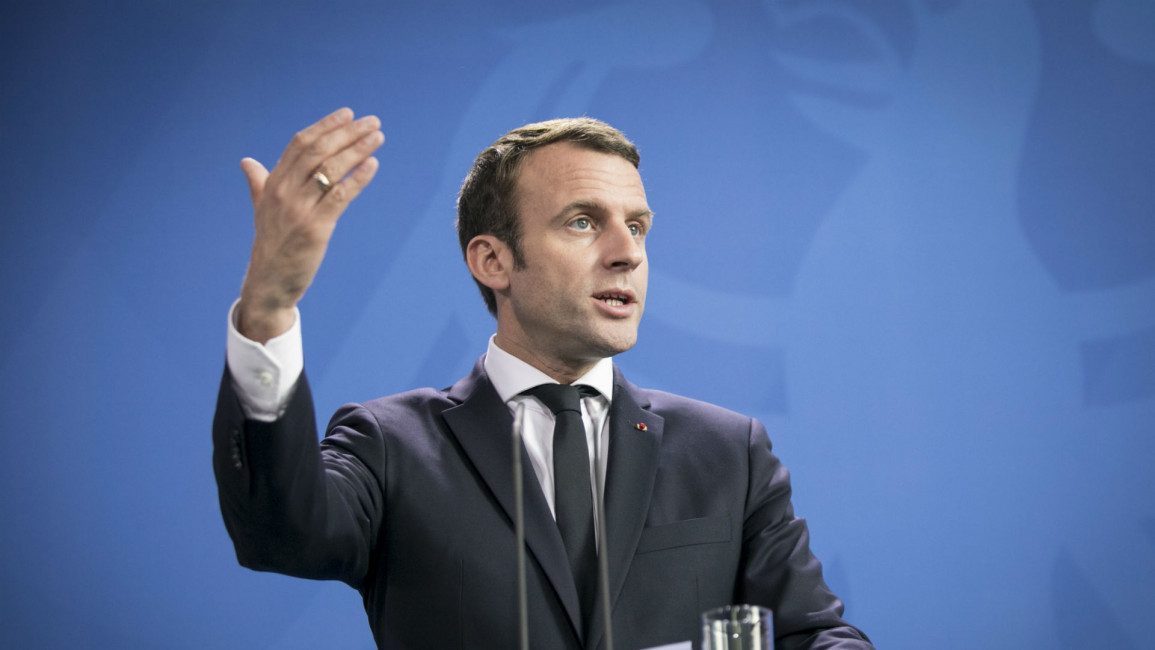Macron 'concerned' about Iran violence, as Rouhani calls on France to tackle Paris-based opposition groups
French President Emmanuel Macron has called on his Iranian counterpart Hassan Rouhani to exercise "restraint and appeasement" during a telephone call between the two figures, as violence in Iran intensifies.
Macron's office said the president brought up "the number of victims from the demonstrations", saying he is concerned by the escalating violence in Iran which has led to possible dozens of deaths and hundreds of injuries.
The two leaders also decided to postpone French Foreign Minister Jean-Yves Le Drian's visit to Teheran this week to a later date, his office said.
At least 21 people have died and hundreds have been arrested in nearly a week of protests in Iran.
Macron's office said the French leader underscored that "fundamental rights including freedom of expression and freedom to demonstrate must be respected".
Iran said Rouhani called for Macron to take action against Paris-based Iranian opposition group Mujahedeen-e-Khalq, who he accused of being a "terrorist group" and being behind recent unrest.
"We criticise the fact that a terrorist group has a base in France and acts against the Iranian people... and we await action from the French government against this terrorist group," Rouhani told Macron, according to Iranian state television.
Macron's office did not comment on these claims but said the two leaders had evoked the 2015 nuclear accord, according to AFP.
The French president wanted the nulear deal - signed between Tehran and world powers - to be "under international supervision" while Rouhani sought "the backing of the international community to defend this accord and respect the commitments undertaken".
President Donald Trump has hinted of a possible US withdrawal from the nuclear deal between Iran and six world powers - the UK, China, France, Germany, Russia and the US, then led by Barack Obama.
The nuclear deal was led from Iran's side by Hassan Rouhani and has led to sanctions relief, although its benefits have not yet been seen in Iran.
General Rassul Sanairad, a political deputy to the head of Iran's powerful Revolutionary Guards, claimed on Tuesday the Mujahedeen-e-Khalq had been instructed by the Saudi rulers and some European states to "create insecurity" in Iran, Tasnim news agency reported.


![President Pezeshkian has denounced Israel's attacks on Lebanon [Getty]](/sites/default/files/styles/image_684x385/public/2173482924.jpeg?h=a5f2f23a&itok=q3evVtko)



 Follow the Middle East's top stories in English at The New Arab on Google News
Follow the Middle East's top stories in English at The New Arab on Google News


